
I do not have a Ph.D. in Immunology. But I consider myself an expert in food and nutrition and who understands the science behind how your diet affects your immune system.
You might ask, what exactly is the immune system? To explain it simply, your immune system is the guardian of your galaxy, protecting your body from all types of tiny invaders (called pathogens) such as viruses, bacteria and parasites.
The immune system is made up of specialized organs, cells and tissues, all working together to destroy these pathogens. When pathogens come knocking on your door, your body has to be able to stop invaders that come from a lot of different places.
With our current COVID-19 crisis in Singapore, not only is observing good personal hygiene and frequent handwashing important, strengthening the immune system helps to keep a person healthy and build a stronger defense against the pathogens.

Sadly, too many of us don’t eat enough of the fresh fruits, vegetables and other foods we need to keep ourselves healthy year-round.
You can’t just eat an orange or grapefruit and expect one single burst of vitamin C to strengthen your immunity immediately.
A truly healthy immune system depends on a balanced mix of vitamins and minerals over time, plus normal sleep patterns and a hefty dose of exercise.
Without much further ado, here’s a look at some immune-boosting foods to consider adding to your meals.
1. KIWIS

When it comes to vitamin C, the nutrient widely known for keeping infections at bay, kiwis are a very good source of it.
One kiwi has about 64 mg of vitamin C, which meets 60-75% of the daily requirement for adults. According to the MInistry of Health, vitamin C recommendations for Singaporeans are 105 mg for men and 85 mg for women per day.
2. RED CAPSICUM
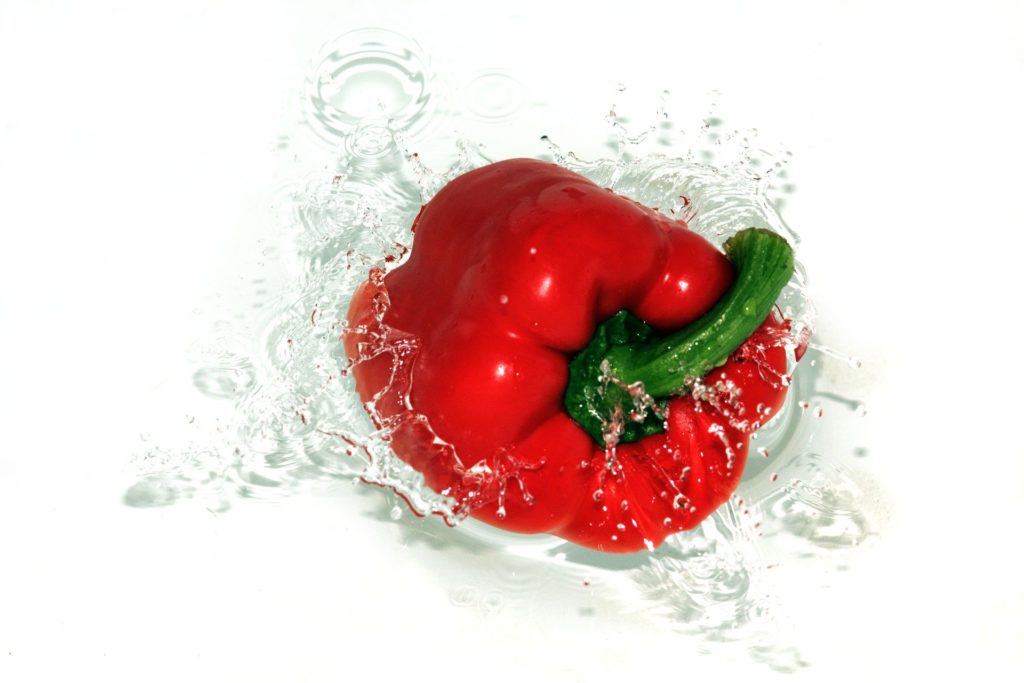
Red capsicum or bell pepper contains twice as much Vitamin C as citrus fruits. One medium-sized red capsicum provides at least 145 per cent of your daily Vitamin C requirement.
Why specifically red capsicum you might ask? What about the green, yellow and orange ones? For starters, red, green, yellow and orange capsicums all come from the same plant but just at different stages of ripeness. Green peppers are unripe, red are fully ripe, with yellow and orange in between the two.
But it is not color alone that separates them apart — as they age, their nutritional qualities and flavor characteristics change as well. Red capsicums contain 1.5 times more vitamin C, 8 times more vitamin A and 11 times more beta-carotene than green capsicums. The yellow ones have more vitamin C than the greens but less vitamin A and beta-carotene.
Capsicums are versatile vegetables (they can be eaten raw or cooked) that can be easily added into dishes, for example thinly sliced and tossed in a salad or wrap. But if you prefer them cooked dishes, you can add them in a stir-fry with your favourite meats.
3. GUAVA
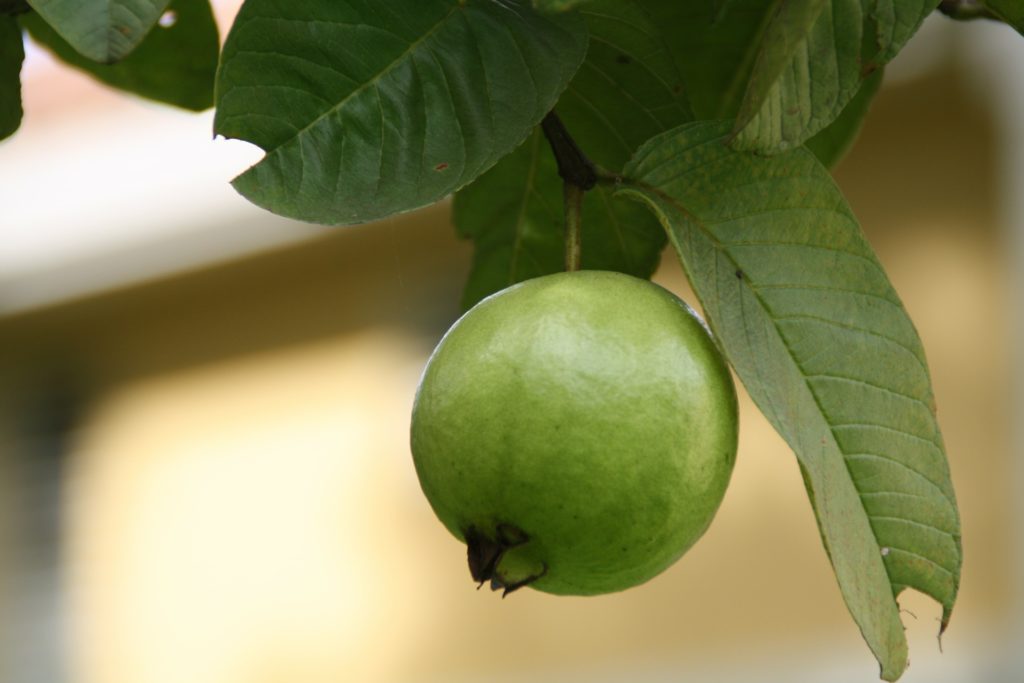
Being in the tropics gives us ready access to guava – hailed as one of the super fruits due to the numerous health benefits it offers.
Guava is packed with vitamin C, with a medium guava containing 125mg of vitamin C. That’s more than the daily dose recommended. Guavas are also rich in antioxidants, vitamin C, potassium, and fibre.
If you ever come across guava with pink flesh and think there might be artificial colourings or food dyes added, do not fret. Its attractive pink colour is due to the presence of carotenoids (a form of vitamin A) pigment called lycopene. The more intense the pink, the more lycopene that is in the fruit flesh. Lycopene is a powerful antioxidant amongst all the carotenoid pigments.
4. BLUEBERRIES
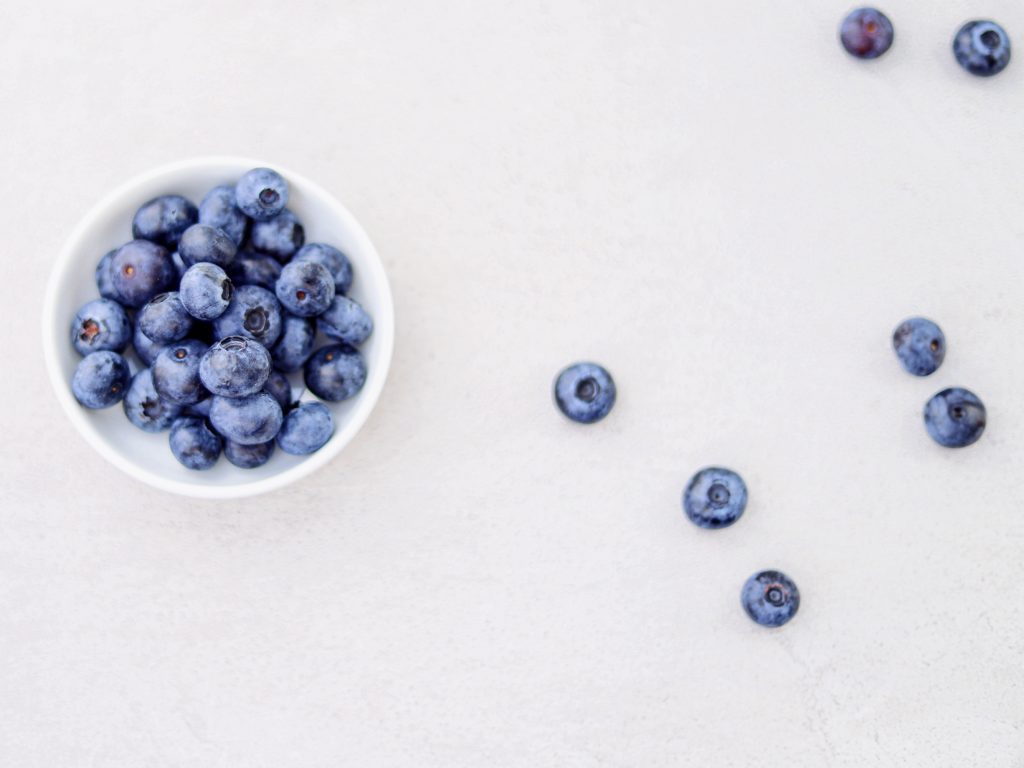
Blueberries contain a type of flavonoid called anthocyanin, which has antioxidant properties that can help boost a person’s immune system.
A 2016 study noted that flavonoids play an essential role in the respiratory tract’s immune defense system. Researchers found that people who ate foods rich in flavonoids were less likely to get an upper respiratory tract infection, or common cold, than those who did not.
In addition, blueberries have plenty of vitamins, including vitamin C, vitamin A, potassium, dietary fiber and manganese.
5. MUSHROOMS

Your immune system works best when there is sufficient glutathione to protect and help the cells in the immune system, such as the white blood cells, function. This potent antioxidant is produced by your body but with age, its level can drop.
Eating mushrooms is one way to top up your glutathione levels as certain species such as the porcini and white mushroom contain high quantities of the antioxidant. Fungi also have high levels of ergothioneine, an immune system-stimulating antioxidant.
Include a serving of mushrooms as part of your two servings of vegetables a day
6. SPINACH
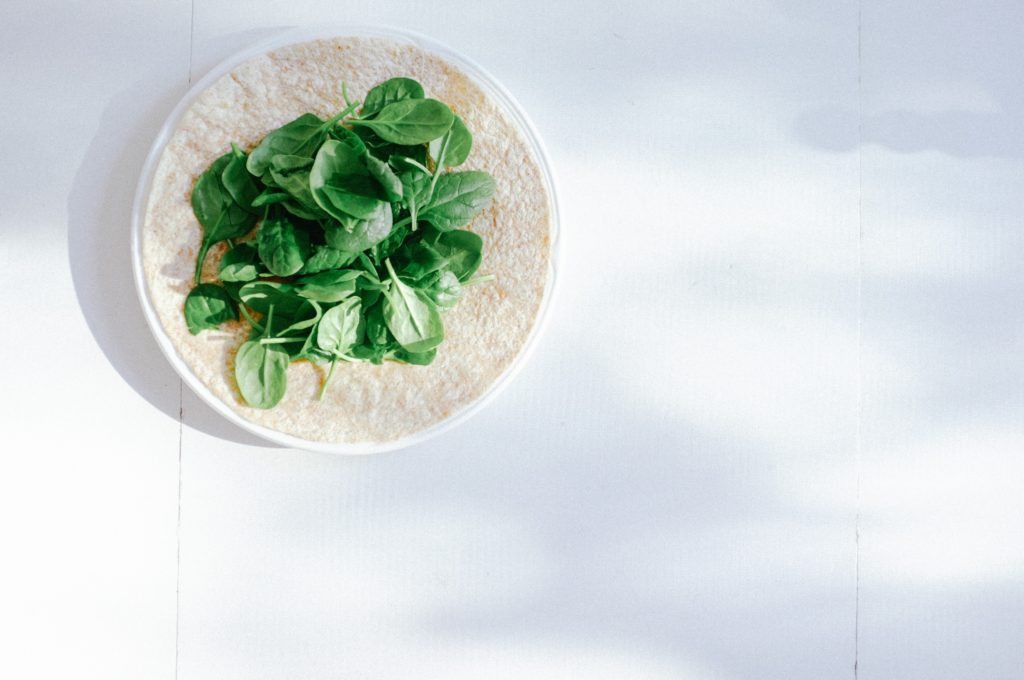
Spinach, considered a “super food”, is packed with many essential nutrients and antioxidants such as flavonoids, carotenoids, vitamins C and E, which increase the infection-fighting ability of your immune system.
You may have heard about the presence of an anti-nutrient called oxalic acid in raw spinach, which can interfere with your body’s absorption of calcium and iron. Hence, the question of which is better? Raw or cooked spinach?
Raw Spinach: Despite containing oxalic acid, raw spinach contains some nutrients such as folate, vitamin C, niacin, riboflavin and potassium, which are more available to our bodies when we consume them raw.
Cooked Spinach: If cooking, always make sure it isn’t overcooked as the nutrients are easily destroyed by heat. Light cooking is all it takes to enhance its vitamin A and allows other nutrients like the carotenoids, zinc, calcium and iron be become more absorbable.
7. GARLIC and GINGER
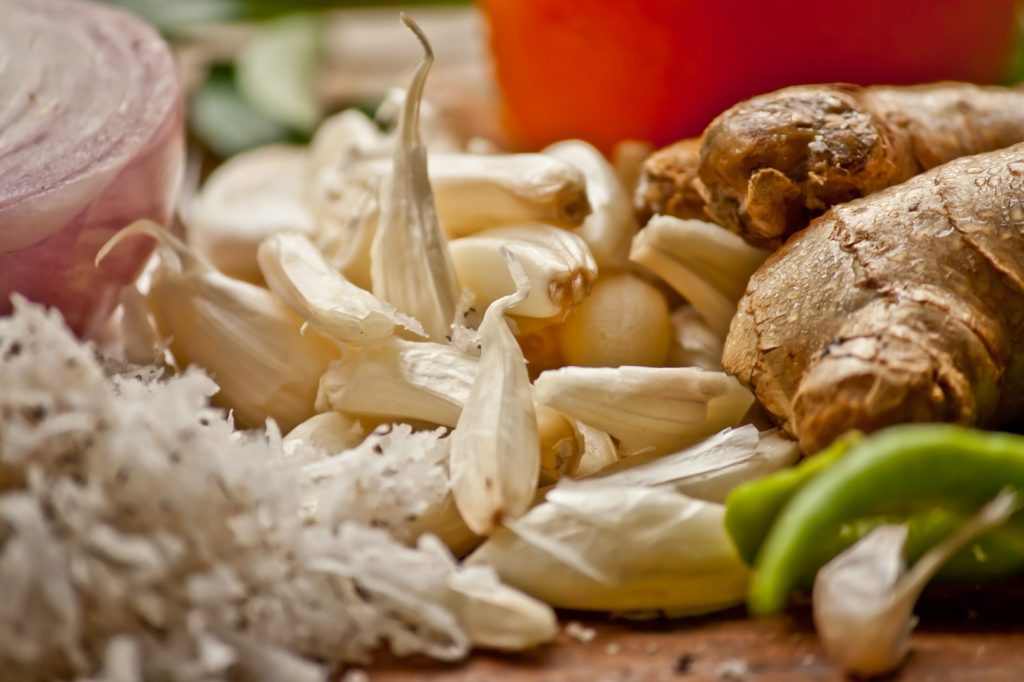
Both garlic and ginger feature very prominently in Asian cooking.
The pungent aroma of garlic comes from sulphur compounds, including allicin. Scientists believe that allicin may block enzymes involved in infections.
Ginger is high in antioxidants and has anti-inflammatory properties. It also contains immune-system-supporting compounds like beta-carotene and capsaicin.
8. YOGHURT
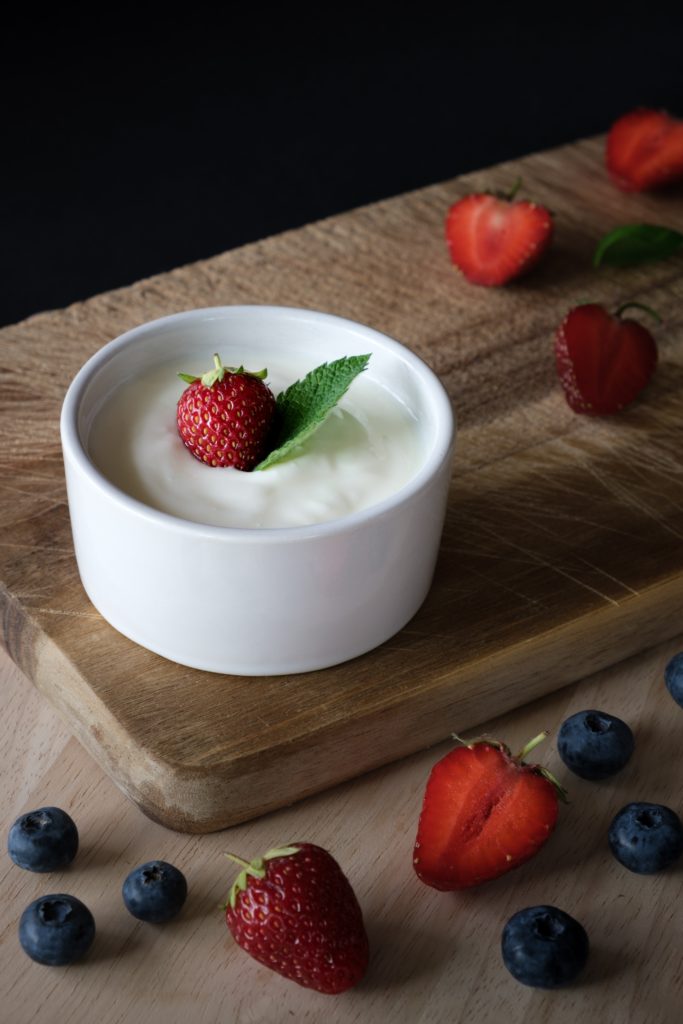
The best way to boost your immune system is through your gut.
Studies have shown that the probiotics in fermented foods such as yoghurt help to improve the body’s immune response, by promoting intestinal health and stimulating the immune system in your gut. That means the gut acts as a protective barrier between harmful pathogens and the body.
When shopping for yoghurt, look for labels that say “live and active cultures” with as little added sugar as possible.
Bonus: 9. Exercise

Getting up on your feet will boost your immunity.
A recent study has proven that exercise enhances your body’s immune responses to bacterial, viral, and other pathogens. Regular physical activity and frequent exercise might also limit or delay aging of the immune system.
Exercise improves your circulation, allowing your immune cells to patrol for problems and move around more so that they can detect illnesses earlier than they might have before.
Exercise makes you feel healthier and more energetic, but, you should not overdo it. People who already exercise should not exercise more just to increase their immunity. Those who wish to start, always consult your doctor first especially if you have any existing medical problems. And remember, start slow.
BOTTOMLINE
Nourishing your immune system takes time. You can achieve a healthy immune system by including a variety and balanced mix of nutrients from immune-boosting foods, plus regular dose of exercise. As the old adage goes, it’s never too late to start.
Do also check out my previous post on 8 vitamins and minerals that are best for boosting your immunity here.
If you are still unsure on how to improve your existing diet for the best nutrition for your immunity, contact us to make an appointment where our expert nutritionist can provide advice catered for your need.
References
- Aishah, B., Hannah, K. and Zati A.O. (2016). Stability of selected quality attributes of pink guava juice during storage at elevated temperatures. International Food Research Journal 23(5): 1918-1925.
- Guggenheim, AG., Wright, KM., & Zwickey, HL. (2014). Immune Modulation From Five Major Mushrooms: Application to Integrative Oncology. Integrative medicine, 13(1), 32–44.
- Somerville, VS., Braakhuis, AJ., & Hopkins, WG. (2016). Effect of Flavonoids on Upper Respiratory Tract Infections and Immune Function: A Systematic Review and Meta-Analysis. Advances in nutrition, 7(3), 488–497. https://doi.org/10.3945/an.115.010538
- Shaik-Dasthagirisaheb YB, Varvara G, Murmura G, et al. (2013). Role of vitamins D, E and C in immunity and inflammation. J Biol Regul Homeost Agents. Apr-Jun;27(2):291-5.
- Kalaras MD, Richie JP, Calcagnotto A, Beelman RB. (2017). Mushrooms: A rich source of the antioxidants ergothioneine and glutathione. Food Chem. Oct 15;233:429-433. doi: 10.1016/j.foodchem.2017.04.109.
- Campbell, J. P., & Turner, J. E. (2018). Debunking the Myth of Exercise-Induced Immune Suppression: Redefining the Impact of Exercise on Immunological Health Across the Lifespan. Frontiers in immunology, 9, 648. https://doi.org/10.3389/fimmu.2018.00648
Leave a Reply